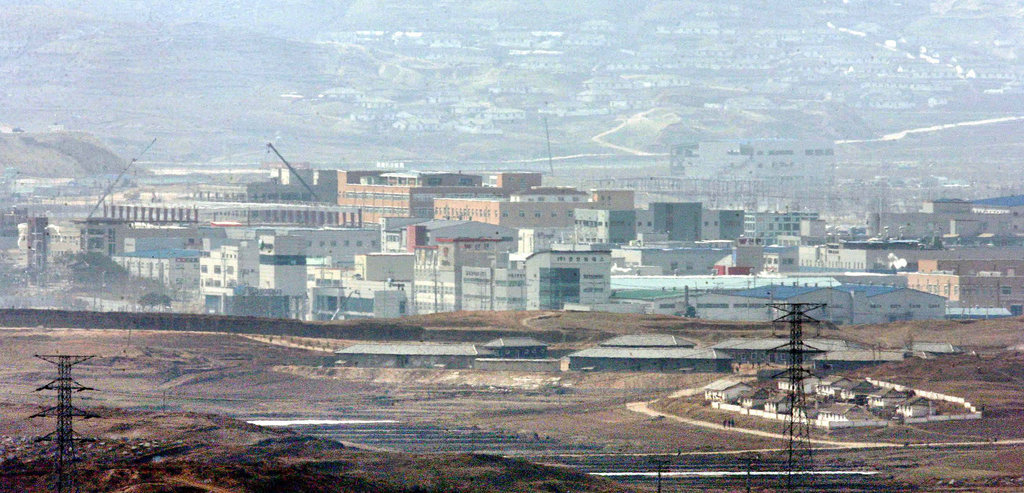Moon vows to invite foreign multinationals to Kaesong
By Cho Chung-unPublished : Oct. 4, 2019 - 16:32
President Moon Jae-in said Friday that he would seek to turn the Kaesong industrial complex into a factory zone for foreign corporations, if the manufacturing village in North Korea’s border city resumes operation.
Moon was speaking at a luncheon with business representatives in South Korea. The remarks came a week after he, in an address delivered at the United Nations, urged support from the international community for designating areas linking the truce village of Panmunjeom and Kaesong in the North as special regions for cooperation for peace. On Friday, he was responding to Kim Ki-mun, chairman of an advocacy organization for small- and medium-sized companies, who said 90 percent of the organization’s members were willing to return to Kaesong, where operations have been suspended for years.

The complex, located some 50 kilometers northwest of Seoul, had served as a major revenue source for the cash-strapped North since opening in 2004. More than 54,000 North Korean workers produced labor-intensive goods such as clothes and utensils. Seoul shut down the factory zone in 2016 in response to Pyongyang’s fourth nuclear test and long-range rocket launch.
The list of people at Friday’s luncheon included Park Yong-maan, chairman of the Korea Chamber of Commerce and Industry; Sohn Kyung-shik, head of the Korea Employers Federation; and Kim Young-ju, chief of the Korea International Trade Association.
When asked about adjustments to the 52-hour workweek system, Moon said that the government was considering fixing problems raised by small and medium-sized enterprises.
Businesses, particularly smaller ones, have been saying that the shorter workweek system imposes significant financial burdens on them, at a time when they are already struggling with a slowing economy.
The meeting came amid growing concerns about deflation.
South Korea’s consumer prices fell 0.4 percent in September from a year earlier, marking the first on-year drop in headline inflation since the government began compiling related data in 1965.
South Korea’s exports fell 11.7 percent on-year in September, hit by weak chip prices and worsening trade dispute between the United States and China.
Asia’s fourth-largest economy has been also facing trade row with Japan over the neighboring country’s restrictions on exports of key materials for chip fabrications since July.
By Cho Chung-un (christory@heraldcorp.com)










![[Kim Seong-kon] Democracy and the future of South Korea](http://res.heraldm.com/phpwas/restmb_idxmake.php?idx=644&simg=/content/image/2024/04/16/20240416050802_0.jpg&u=)









![[Today’s K-pop] Zico drops snippet of collaboration with Jennie](http://res.heraldm.com/phpwas/restmb_idxmake.php?idx=642&simg=/content/image/2024/04/18/20240418050702_0.jpg&u=)